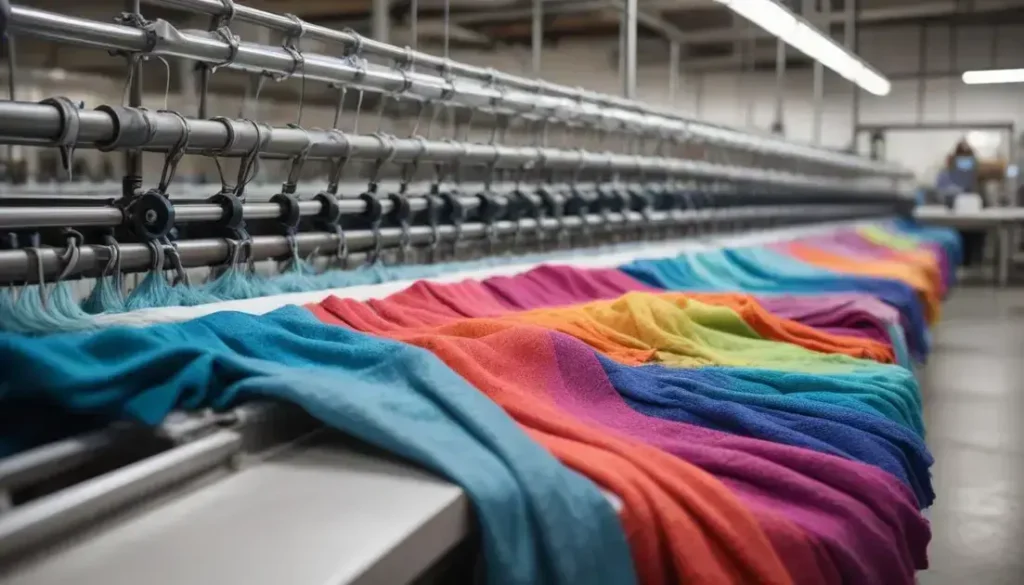Recycled records significantly reduce environmental impact in music production by utilising post-consumer materials, helping UK businesses meet consumer demand for sustainability while enhancing brand reputation and fostering loyalty among eco-conscious audiences.
Recycled records are changing the way music is produced and consumed, and Coldplay’s latest initiative is leading the charge. What does this mean for UK businesses?
Coldplay’s sustainability mission
Coldplay’s commitment to sustainability marks a pivotal shift in how the music industry operates. The band has taken significant steps to minimise their environmental impact, from their touring practices to the materials used in their album production. A key component of this initiative is their use of recycled records, which not only reduces waste but also promotes a circular economy within the music sector.
By choosing to produce albums from recycled materials, Coldplay sets a strong example for other UK businesses. This approach aligns with the growing demand for sustainability and transparency from consumers. Furthermore, it challenges traditional manufacturing processes that often overlook environmental consequences.
In addition to the production of eco-friendly vinyl, Coldplay’s tours feature other sustainable practices, such as reducing plastic usage and promoting local ecosystems. As the band continues to lead the charge in sustainability, their actions encourage fans and fellow artists to adopt greener practices. This movement has the potential to create a ripple effect across the global music industry, prompting a collective responsibility towards our planet.
Ultimately, Coldplay’s sustainability mission highlights how creativity and environmental consciousness can coexist, paving the way for a music industry that values both art and the environment.
Introduction to EcoRecords
EcoRecords represent a significant innovation in the music industry, designed to address the pressing environmental concerns associated with traditional vinyl production. These records are made from recycled materials, minimising waste and conserving resources. By opting for EcoRecords, consumers support a move towards a more sustainable future.
The production process for EcoRecords involves utilising post-consumer plastics, which are reformed into new vinyl. This not only enhances the lifespan of materials but also reduces the carbon footprint associated with new vinyl synthesis. As a result, artists and labels that choose this manufacturing method demonstrate their commitment to sustainability.
Moreover, EcoRecords play a vital role in the growing trend of green music practices. Artists like Coldplay lead by example, incorporating these eco-friendly records into their discography. This initiative resonates with fans who increasingly prefer products that align with their values regarding environmental stewardship.
In embracing EcoRecords, the music industry is fostering a cultural shift. This transition not only highlights the importance of environmental responsibility but also encourages listeners to consider their consumption habits. Ultimately, EcoRecords illustrate how creativity and sustainability can work hand in hand to create a better world.
Benefits of recycled vinyl
The benefits of recycled vinyl extend beyond just environmental factors; they also include economic and social advantages. Firstly, using recycled materials significantly reduces the demand for new resources. This lowers production costs which can be passed on to consumers, making music more accessible.
Additionally, recycled vinyl production has a smaller carbon footprint compared to traditional vinyl manufacturing. By reducing energy consumption and waste, this process aligns with growing global sustainability efforts. Companies that adopt these practices can attract a larger customer base, particularly those who are environmentally conscious.
Another notable advantage is the enhancement of brand image for artists and record labels. By committing to eco-friendly practices like producing albums from recycled materials, they can positively influence their reputation. Fans are increasingly supportive of artists who demonstrate a commitment to sustainability, which can lead to increased sales and loyalty.
Moreover, the use of recycled vinyl promotes a culture of innovation within the music industry. Companies are encouraged to explore new technologies and methods to improve production processes, fostering a dynamic market environment. Ultimately, the shift toward recycled vinyl represents a vital step in creating a sustainable future for the music industry.
Impact on the music industry
The introduction of recycled vinyl is transforming the music industry significantly. This shift not only addresses environmental concerns but also influences how artists and record labels operate. By embracing sustainable practices, the industry enhances its credibility and resonates with a growing number of environmentally conscious consumers.
Traditional vinyl production has often been associated with high carbon footprints. However, the move to eco-friendly records reduces overall emissions and waste. This transition encourages record labels to innovate and invest in new manufacturing techniques, setting a precedent for future developments within the industry.
Artists that adopt recycled vinyl can leverage their commitment to sustainability as a unique selling proposition. This aligns their brand with a conscious lifestyle, attracting fans who value ethical consumption. As a result, artists may see an increase in sales and a stronger connection with their audience.
Moreover, the shift towards sustainable practices in music can inspire broader changes in other sectors. The music industry’s influence can mobilise efforts across various fields, promoting a culture of sustainability that extends beyond recordings. Ultimately, the impact of recycled vinyl reflects a necessary evolution in the music industry, embracing both creativity and responsibility.
What UK businesses should know
As UK businesses navigate the evolving landscape of sustainability in the music industry, understanding the implications of recycled vinyl is crucial. Firstly, companies must recognise the growing consumer demand for eco-friendly products. Today’s customers are more informed and prefer to support businesses that prioritise environmental responsibility.
Additionally, investing in sustainable practices can enhance a brand’s reputation. Businesses that adopt recycled vinyl production can differentiate themselves in a competitive market, appealing to a demographic that values ethical consumption. This commitment to sustainability is not only a marketing strategy but also a means of fostering loyalty among consumers.
Another essential consideration is complying with regulatory frameworks related to environmental standards. As governments increasingly address climate change, UK businesses should stay informed about relevant legislation on waste management and recycling initiatives. Understanding these regulations can help avoid potential penalties while improving business practices.
Moreover, collaboration with suppliers focusing on sustainability can create a more resilient supply chain. Businesses should seek partnerships with companies that align with their eco-conscious values, promoting a unified approach to reducing environmental impact. Ultimately, by embracing change and prioritising sustainability, UK businesses can thrive in the music industry’s new green era.
The Future of Sustainability in Music
In conclusion, the shift towards recycled vinyl is reshaping the music industry, leading to a brighter, more sustainable future. As businesses in the UK embrace eco-friendly practices, they enhance their reputations and meet consumer demands for greener products.
The benefits extend beyond environmental factors. Companies can build stronger relationships with customers and create a loyal fan base by committing to sustainability. Understanding regulatory standards and collaborating with like-minded suppliers are essential steps in this journey.
Ultimately, the adoption of recycled vinyl is not just a trend but a necessary evolution in the industry. By prioritising sustainability, UK businesses can thrive in a competitive market, inspire change, and contribute positively to the planet. Embracing this shift will empower them to shape the future of music for generations to come.
Frequently Asked Questions
What are the benefits of using recycled vinyl in the music industry?
Recycled vinyl reduces environmental impact, conserves resources, and can lower production costs. It also enhances brand reputation and appeals to eco-conscious consumers.
How does sustainability in music affect consumer behaviour?
Consumers are increasingly favouring products that demonstrate environmental responsibility. Supporting artists and brands that use recycled materials helps them align with their values.
What regulations should UK businesses be aware of regarding sustainability?
UK businesses should stay informed about environmental regulations related to waste management and recycling initiatives, as these can influence production practices.
How can artists leverage their commitment to sustainability?
By promoting their use of recycled vinyl, artists can attract an audience that values eco-friendly practices, enhancing their brand image and loyalty among fans.
What steps can businesses take to implement sustainable practices?
Businesses can start by researching suppliers who focus on sustainability, adopting eco-friendly materials, and educating staff about environmental practices.
Why is collaboration important for sustainable practices in the music industry?
Collaboration with like-minded suppliers and partners fosters a unified approach to sustainability, leading to innovative solutions and a stronger resource network.


